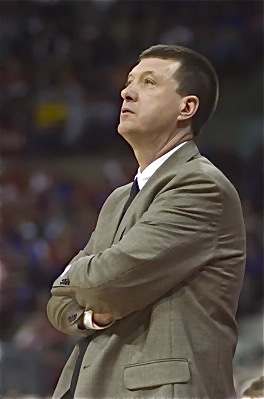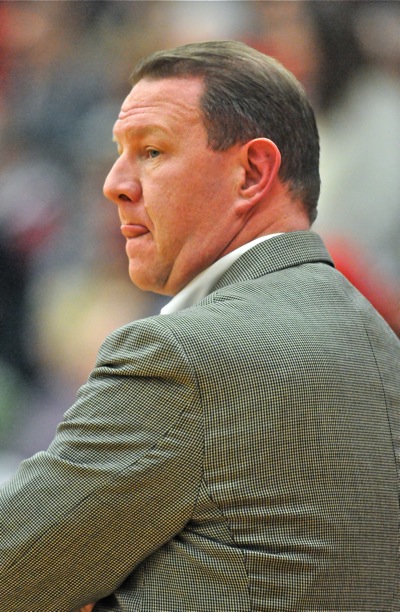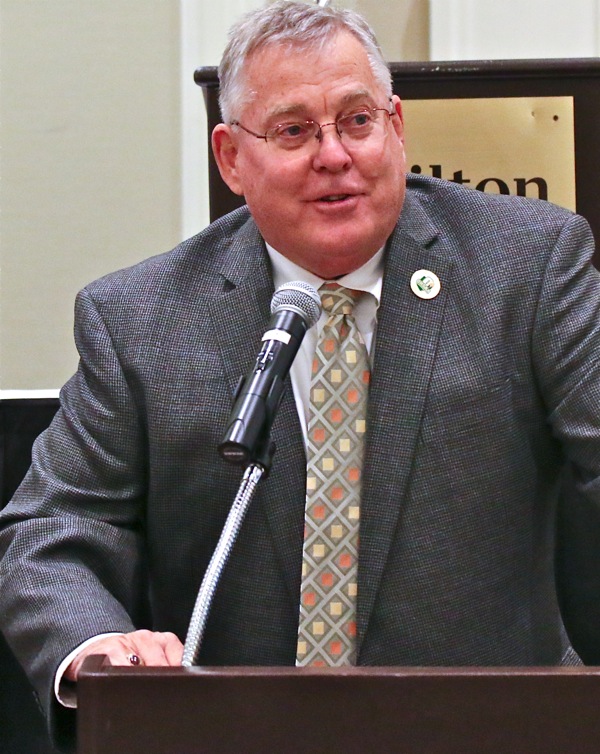With the change in cultural expectations, communities are looking harder at the personality of coaches…and the expectations that coaches have for those they coach. It’s obvious, the expectations aren’t the same.
On a swing through southern Ohio last week I got lucky. No, not that kind of lucky, but lucky in the sense of finding a friend at home, and a former high school basketball coach for the best part of three decades. He retired a few years ago, prematurely. But he’d had enough. He called it quits.
And his story is not unlike that of other coaches who are leaving early – for a different school, a different opportunity, or in some cases, a different expectation from the community. Look around since the end of last basketball season….and see the new faces at new schools – Karl Ratermann at Covington, Brad Francis at Fairlawn, Roger McEldowney at Arcanum, and a yet-to-be named successor for Versailles girls coach Jacki Stonebraker, who resigned last week after sixteen seasons, two state titles and countless sectional, district, and four regional titles to become the school’s principal.
In the case of some…they would have stayed longer. It’s hard to imagine a ‘lifer’ like former Russia coach Paul Bremigan not coaching basketball. It’s hard to imagine leaving a school after 35 years, one you’ve taken to the state tournament. And yet, for Bremigan, and former Loramie coach Dan Hegemier, to say it diplomatically…no one begged them to stay, despite enormous success – Hegemier winning two state titles at Loramie, in 1987 and ’93. Bremigan recently announced his resignation from the Troy head coaching position after four years. “I just didn’t have the energy anymore to take Troy to the next level,” he said to the local paper. “They needed a new voice.”

A three-time state champion (Fort Loramie and New Knoxville) Dan Hegemier just returned as head basketball coach at St. Marys.
Hegemier, ironically, just returned to coaching, taking the job at St. Marys (his second stint there). He previously coached there from 2009 through 2014.
It’s a familiar scenario to a friend who had won his share of games at the time of his own retirement, who admits now, “There were people standing in line to see me go. It’s not the same job it once was.”
Former Covington coach Bob Huelsman said this recently. “Once a coach, always a coach, like Roger McEldowney talks about in your current First Person interview. You always have that desire. But it would be tough for me today, given society’s demands – parents’ demand – that everybody plays and everyone’s rewarded equally.”
In a recent ESPN Magazine article detailing the relationship between Davidson coach Bob McKillop and his former point guard, Steph Curry, there is scenario described by author Tom Junod that exactly details the difference in generational coaching. McKillop, speaking of his day coaching prep basketball, describes a situation in which he handled one particular player as head coach at Holy Trinity High School, in Hicksville, New York. It was one of those ‘my way or the highway’ situations where the player, one of New York’s best prep shooters for his time, simply chose the highway. He quit basketball altogether.
My friend had that magazine, showed me the article, and even flipped it in the front seat of my car…to keep. It hit very close to home with his own coaching experience.
“I’m going to tell you some things,” he said. “But I still have to live. I have family here. And I have a son coaching, so I don’t want to see my name. But I’m going tell you why you’re lucky if you can take young people today and really coach them. Because, in a lot of cases you have to break some bad habits, and some attitudes of entitlement that they bring from home. In very few places can you do that anymore without it costing you your job.”
He continued.
“A few years ago I had a kid who could play, and he knew he could play. Everyone knew he could play. But he got to a point where he thought he was privileged. He came to practices late, and in one case he missed a Saturday morning shoot-around, altogether. On Monday I addressed it. After practice I told him he was going to run. He told me, ‘How’s running going to put the ball in the basket?’ He was a little arrogant, but he did run, a couple of baseline-to-baseline sprints, and then walked out of the gym to the locker room.
“I went and got him – told him he wasn’t done. He told me that he was done, and went home. So when he came to practice the next day I stopped him and told him he was not going to practice. ‘You quit yesterday,’ I told him, and I’ll have your uniform. Obviously there was a meeting with his family, the principal and the superintendent, and there were some upset people. The superintendent asked me if I thought my action was too harsh – if it was best for the kid. I answered, ‘I’m more concerned if it was what’s best for the rest of the kids. They’re the ones who show up on time and run as long as they told.’ Who are you the most concerned about?”
That player ultimately transferred, and finished at another school after sitting out a year. But the waves created by the incident lingered.

“If you have supportive administration they appreciate the work, the discipline, and the improvement.” – Mike Piatt
“It dogged me for the rest of my time coaching there,” he adds, with some bitterness. “The thing is…there were kids in this community that I taught to be a team, how to be successful. Now, they’re out on their own and have families of their own. They thank me all the time for teaching them how to make decisions. But the community didn’t see that. The conversation became about how I could become a better listener, a better communicator, and more open to change.”
New Knoxville coach Mike Piatt is personally familiar with the change of culture, and shares his own observation.
“It really boils down to administration,” says Piatt. “If you have a supportive administration they know that athletics for kids is the best preparation there is for life. They’re going to appreciate kids working hard, discipline, and improvement. I know because we only won three games last year and I had the most enjoyable year coaching in my life. I had a great administration, and I’ve seen both.”
In the Bob McKillop/Steph Curry story, McKillop acknowledges a change in his own coaching mantra since that incident back in the 70s. But, he’s also quick to acknowledge that coaching now comes with a different kind of athlete.
“Steph Curry brought his game, and his shot with him when he came to Davidson. It wasn’t something I did,” says McKillop. “He was a revolutionary, a game changer, and I had to change my thinking about what’s a good shot and what’s a bad shot. But he EARNED the right, and I had to learn how to use him.”
The problem is, as my friend shut the door and said goodbye Sunday, “There just aren’t as many Steph Currys as moms and dads think. And you don’t earn the privilege just because you wear a uniform, like the community wants to believe.
“And I know how many titles they win up where you live,” he finished. “They don’t know how lucky they are – where a coach can be a coach!”

"Once a coach, always a coach. You always have that desire. But it would be tough today - everybody plays and everyone's rewarded equally." - Bob Huelsman (Press Pros Feature Photos)

